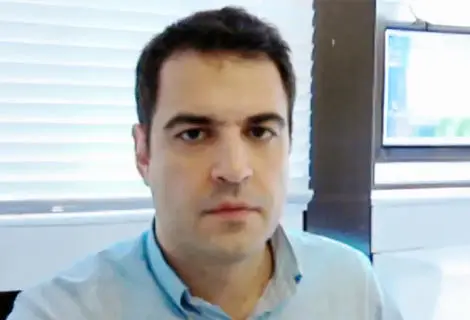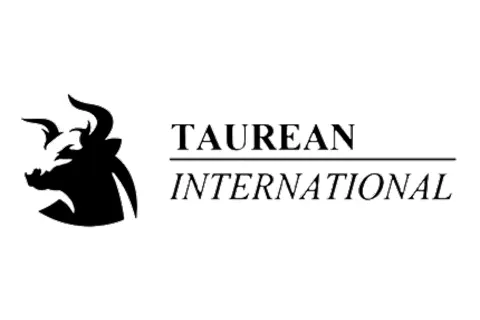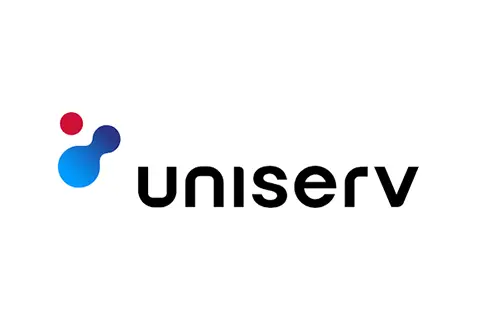Key information
Our online MSc Civil Engineering and Construction Management equips you with the technical expertise and project leadership skills to deliver complex infrastructure projects on time, on budget and to the highest standards. Study flexibly while you work and gain a qualification recognised across the global construction and civil engineering sectors.
- Level
- Postgraduate
- Delivery type
- Self-paced
- Degree qualification
- MSc
- Location
- Online
- Duration
- Flexible
- Start date
- January, September
Programme overview
Organisations increasingly need engineers who can combine deep technical knowledge with strong construction and project management skills. This MSc places you at the intersection of civil engineering innovation and project leadership, preparing you to deliver major infrastructure in areas such as transport, water, wastewater and energy.
Drawing on the strengths of Heriot-Watt’s internationally recognised Construction Project Management and Civil Engineering provision, the programme blends advanced technical content with practical management tools and methodologies. Delivered fully online, it is ideal for professionals seeking progression, specialisation, or a route into leadership roles – without stepping away from work.
Top 200
Ranked among the top 200 globally for Civil and Structural Engineering (QS World University Rankings by Subject 2025).
Industry
Learn from industry. Guided by an Industry Advisory Committee with experts from AECOM, Arup, Atkins, Balfour Beatty, Jacobs and WSP.
Flexible
Complete your MSc fully online and in as little as two and a half years or pace your learning around your career and life.
Gain the skills to manage the full lifecycle of civil engineering projects – from feasibility and design through to delivery and performance. You’ll deepen your technical foundation while building the management capability to coordinate teams, control risk, and drive successful project outcomes in a competitive global market.
By studying this MSc Civil Engineering and Construction Management, you will:
- Gain advanced, specialised knowledge of modern civil engineering practice, including project and construction management.
- Build transferable problem-solving skills for complex, multidisciplinary environments.
- Hone the applied mathematical and analytical skills required by professional engineers.
- Design efficient, safe, and sustainable solutions for real-world civil engineering problems.
- Apply the latest advances in materials, structures, and project management to lead infrastructure delivery.
- Communicate technical solutions, risks, and recommendations clearly to engineers, stakeholders, and the public.
Start with just one course
We’ve made it simpler than ever for you to start your MSc. With performance-based admission, you only need to pay for and then pass your first course in Stage One to join the programme. No barriers. Get started today.
Enrol nowStudent experience
Heriot-Watt University is ranked among the top 200 universities in the world for Civil and Structural Engineering (QS World University Rankings by Subject 2025). We are also 1st in Scotland and 3rd in the UK for Building (Times and Sunday Times Good University Guide 2025) and 1st in Scotland for Construction, Surveying and Planning (Guardian University Guide 2025).
This global recognition reflects the strength of our teaching and research in the built environment, making Heriot-Watt an ideal place to advance your civil engineering and construction management career.
The MSc Civil Engineering and Construction Management is led by Dr Benny Suryanto, an award-winning researcher in advanced concrete materials and structures, including fibre-reinforced and low-carbon concretes. His work has been recognised with multiple international prizes, ensuring your learning is informed by cutting-edge research and industry practice.
Course content
During this programme, you’ll complete eight taught courses and a research dissertation, totalling 180 credits. All courses are delivered online, allowing you to study from anywhere in the world at a pace that suits you.
Optional courses
- Foundation Engineering
- Sustainability for Construction Professionals
- Plastics Analysis of Structure
- Advanced Design of Reinforced Concrete Structures
- Advanced Design of Steel and Steel-Concrete Composite Structures
- Environmental Hydrology and Water Resources
- Structural Dynamics and Earthquake Engineering
- Finite Element Method: Linear Analysis
- Finite Element Method: Nonlinear Analysis
- Machine Learning and Programming
- Structural Materials
- Safety, Risk and Reliability
- Urban Drainage Design and Analysis
- Water Supply and Drainage for Buildings
- Water Supply Systems Analysis
- Construction Financial Management
- Project Management: Theory and Practice
- Project Management: Strategic Issues
- Value and Risk Management
Dissertation
- Research Dissertation (Civil Engineering)
Study at your own pace
Our flexible online model allows you to study wherever you are in the world, while continuing to work and apply new knowledge in your role. Complete your MSc in as little as 2 and a half years or spread your studies over a longer period to suit your commitments.
Apply nowProgramme video
Hear from our School of Engineering, Geoscience, Infrastructure and Society Graduates
Ravan Adilov, Marcelo Santos Ibarra and Tagan Yarmuhammedov discuss their experiences studying with Heriot-Watt Online.
Our teaching faculty

Fees and funding
Tuition is available on a pay-per-course basis.
| Per course | Dissertation | Full programme |
| £1,570 | £2,030 | £14,590 |
Fees apply to courses starting between September 2025 and August 2026. Fees include one assessment attempt and may increase annually. Find out more about our tuition fees.
Funding opportunities
Pay Per Course
All our programmes offer the flexibility to pay course-by-course, allowing you to spread the cost of your tuition over the lifetime of your studies.
20% Alumni Discount
If you are a Heriot-Watt alumnus, you qualify for 20% off your programme fees. For more information on how to claim your alumni discount contact hwonlineapps@hw.ac.uk.
Employer Sponsorship
All our programmes offer the flexibility to pay course-by-course, allowing you to spread the cost of your tuition over the lifetime of your studies.
We're here to support you
If you have questions or need help with enrolment, complete our quick enquiry form and an Enrolment Advisor will be in touch.
Contact usEntry requirements
We have standard entry requirements for all of our courses that you will have to meet.
We welcome applications from graduates and professionals with backgrounds in engineering, construction, architecture, project management, or related disciplines.
Standard entry requirements
- Minimum 2:2 honours degree (or equivalent) in a cognate or semi-cognate subject, or
- Corporate or Chartered membership of a relevant professional institution.
Alternative entry
Candidates without standard qualifications may be considered on the basis of CV and interview at the discretion of the Director of Admissions.
Recognition of prior learning (RPL)
We are committed to providing study opportunities to applicants who have a wide range of prior experiences and recognise that some students entering our online programme will have completed prior academic study in subjects that align closely to this programme. Where this is the case, students may apply for Recognition of Prior Learning (RPL).
- Applying for RPL: We can only consider requests for RPL at the time of application to a course of study.
- Maximum credits: You may be eligible to be granted exemption for a maximum of 20 credits.
- Eligibility: The qualification may be valid for RPL only if gained with the last 5 years. Evidence will need to be provided.
- Cost breakdown: The overall cost of your programme will be determined by whether you are awarded RPL for a 20-credit course, in which case you will not be required to register for that course. Programme fees can be found under the fees and funding section.
For more information contact hwonlineapps@hw.ac.uk.
English language requirements
If your first language is not English, or your first degree was not taught in English, we'll need to see evidence of your English language ability.
The minimum English language requirement for entry to this programme is IELTS 6.0 (or equivalent) with no score lower than 5.5.
If you do not have IELTS 6.0, we offer a range of English language courses to help you meet the English language requirement for this programme prior to commencing your studies.
Why Heriot-Watt
We're the top university in Scotland for graduate outcomes and 5th in the UK, which means that more of our graduates are employed or in postgraduate education than any other institution in the country. We're also ranked 1st in Scotland for producing CEO and MDs (Novuna Business Cash Flow 2023).
We're Scotland's most international University, with five global campuses and a global community of 60,000 online students and alumni from over 158 countries. Our online programmes are designed and developed by the same faculty who teach on our global campuses - expert academics and leaders in research and innovation who work alongside industry to find solutions to some of the world's most pressing challenges.
Together, we shape your future.
Top 200
Ranked among the top 200 globally for Civil and Structural Engineering (QS World University Rankings by Subject 2025).
Industry
Strong industry links. Supported by an Industry Advisory Committee of leading engineering firms.
Flexible
Complete your MSc fully online and in as little as two and a half years or pace your learning around your career and life.
Employability
With our flexible model you can earn while you learn, build your CV, and apply new skills right away. Get free access to 500+ industry credentials and dedicated Careers Service support.
Potential career paths
- Construction Manager
- Civil Engineering Manager
- Civil or Structural Engineer
- Construction Project Manager
- Land Development Project Manager
- Site Engineer
- Sustainability Consultant
Your Online experience
Explore Heriot-Watt Online as a student
Speak to an Advisor
Our Enrolment Advisors are here to help you explore your options, entry routes, and how online study can fit around your life.
Book a call









